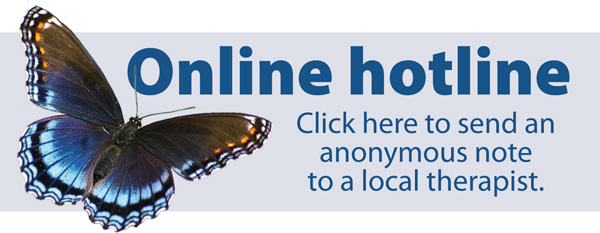 Please help settle this argument between me and my husband. He says my parenting style is to “rescue” our kids too much. For example, if our son forgets to put his completed homework in his backpack, I would take it to him at school so that he doesn’t get in trouble with his teacher. My husband thinks I need to let our kids fail and deal with the consequences. But I think it would be wrong NOT to help someone out if I’m able to do it. Any thoughts?
Please help settle this argument between me and my husband. He says my parenting style is to “rescue” our kids too much. For example, if our son forgets to put his completed homework in his backpack, I would take it to him at school so that he doesn’t get in trouble with his teacher. My husband thinks I need to let our kids fail and deal with the consequences. But I think it would be wrong NOT to help someone out if I’m able to do it. Any thoughts?
One of the greatest challenges in parenting is knowing when to support, when to help, but also knowing when to step back and allow our children to do something on their own. The latter is much easier when doing something on their own is something they do well and feel confident in. It becomes much harder when it means watching our children struggle. Unfortunately, when parents do too much for their children they often begin to over-function for their children which can lead to a state of learned helplessness for that child.
 Why do parents do it?
Why do parents do it?
It sounds like you love your children very much and that is really the root of why we want to do things for our children and protect them from experiencing pain or discomfort. It also can sometimes be easier to do things ourselves. Imagine a toddler who can put their own clothes on but we do it for them because we’re in a hurry or because, invariably, that child will put the shirt on backwards.
But doing it for the toddler doesn’t teach him or her how to put the shirt on the right way. So similarly, taking your child’s homework to school for him doesn’t teach him how to better prepare in the mornings to make sure he has what he needs or to face what natural consequences may occur in forgetting the homework.
How can it negatively impact your child?
Kids need to learn how to solve problems, how to take risks, and most importantly how to rely on their own abilities to handle difficult situations. When a parent over-functions for their child it prevents them from developing these important skills that they need. They also might be getting the message from you that you don’t think they can do these things for themselves.
Keep in mind that even though letting them learn these lessons can mean that at times they will fail, it also means sometimes they will succeed! Oh and how proud they will be of themselves and how proud you will be of them. We also know that in life (both in childhood and adulthood) there are much bigger obstacles and challenges we will face than forgetting homework. Letting your child work through the smaller challenges prepares her and you for the bigger ones to come.
Things to consider
Now, before you go pulling all support to your child here are a few things to consider when deciding when and how to help. What’s the age of your child? We provide more direct support and help to younger children. For older children or adolescents, consider if there have been any recent changes or stressors.
Also, what is their behavior like normally? If this is the first time your child has forgotten his homework or if he has recently had a loss and is struggling more, these are times that we want to help our children. Also consider if he or she has a learning disability or other disability that may be a factor in how you intervene. Think about it and try to figure out if you’re frequently doing things for your kids that they can do for themselves. In those areas, you need to step back and let them learn and grow.
What to do?
The phrase that comes to mind in thinking about stepping back and watching a child struggle is, “easier said than done.” It’s hard for parents to make these changes, and kids may even resist as their parents make the changes. Use your husband’s support and talk with him or others about your own challenges with stepping back. You can also talk with your children first about the changes that will be made and what that will look like for them. Let your child know that you know he or she can do it and you want to give those opportunities to succeed. You then become the support and the ear to listen as they face challenges, and that’s an amazing role.
Therapists at Ozark Guidance would be happy to answer your questions and read what’s on your mind. Click the butterfly icon below to fill out an anonymous submission form with your question or concern. The form contains NO identifying information and is designed to give local women an online place to share concerns with a person qualified to offer feedback.
 Disclaimer: This RESPONSE does not provide medical advice It is intended for informational purposes only. It is not a substitute for professional medical advice, diagnosis or treatment. Never ignore professional medical advice in seeking treatment because of something you have read on nwaMotherlode or Ozark Guidance websites.
Disclaimer: This RESPONSE does not provide medical advice It is intended for informational purposes only. It is not a substitute for professional medical advice, diagnosis or treatment. Never ignore professional medical advice in seeking treatment because of something you have read on nwaMotherlode or Ozark Guidance websites.







